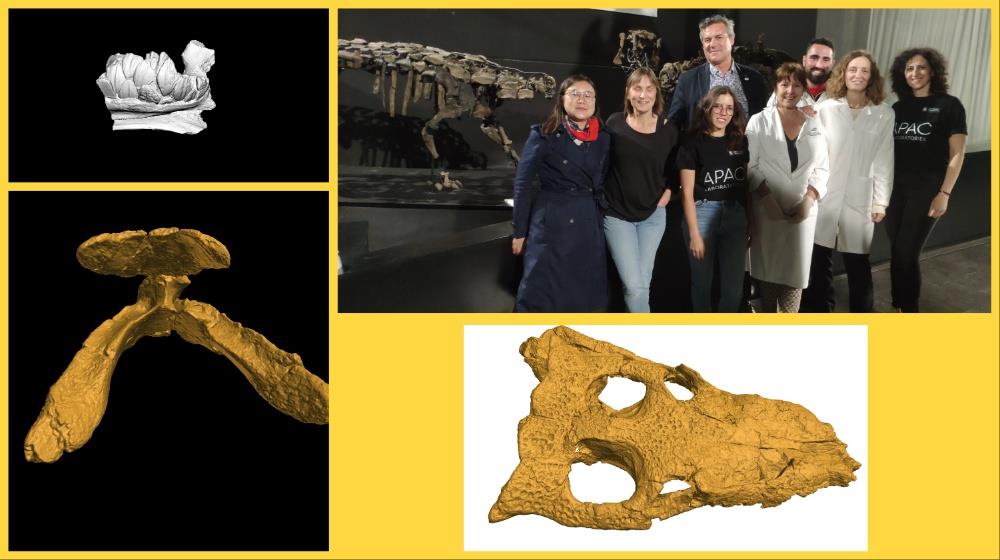Researchers from the Cyprus Insitute's (CyI) Science and Technology in Archaeology and Culture Research Center (STARC) are participating in an important multidisciplinary and multi-institutional project for the 3D documentation and digital analysis of the Ariño (Teruel, Spain) dinosaurs fossils dated to the Early Cretaceous (145 Ma to 100.5 Ma –millions of years ago).
In 2010, inside the Santa María de Ariño open-pit coal mine, the evidence of the presence of dinosaur bones was found. Over the vast expanse of the mine, lies an abundance of vertebrate skeletons offering a remarkable potential to increase scientific knowledge of European dinosaurs. Two new dinosaur genera were identified: the iguanodontian Proa and the ankylosaur Europelta, as well as many other fossils, mainly vertebrates, from the Albian age (approximately 113.0 ± 1.0 Ma to 100.5 ± 0.9 Ma).
Currently, four new genera have been described (the aforementioned plus the pleurosternid tortoise Toremys and the goniopholidid crocodile Hulkepholis) and eight new species among the almost 10,000 fossils corresponding to 143 concentrations located inside the open-pit Santa María coal mine. The huge expanse of the site, the abundant and fairly complete vertebrate skeletons and the scarcity of European dinosaur sites in the Albian, make it an exceptional place, which brings a remarkable progress in the knowledge of European vertebrates –some of which represents the most modern known records.
The dinosaurs’ fossils are now exhibited and conserved at the Palaeontological Network Foundation of Teruel-Dinópolis, one of the biggest tourist attractions of the province - more than 3 million visitors since its 2010 launching.
The research aims at investigating the mechanisms of alteration of the sulfides (pyrite) that the fossils contain and defining an optimal conservation treatment. 3D documentation will allow monitoring the structural changes on the basis of environmental and climatic change, to investigate the deformation and fracture mechanisms in order to evaluate the structural condition of fossils, and obtain an ‘Augmented Heritage Object’ aimed at organizing and visualizing multidisciplinary data for further documentation, conservation and dissemination activities.
This research is conducted as part of the European project IPERION HS-Integrating Platforms for the European Research Infrastructure on Heritage Science and the ESPADON project, under the direction of Prof. Vincent Detalle (Cergy Paris University). Collaborators include the National Centre for Research and Restoration in French Museums - C2RMF (Dr Kilian Laclavetine and Dr Xueshi Bai), the Palaeontological Network Foundation of Teruel-Dinópolis (Dr Ana González), the Aragonese School of Conservation and Restoration of Cultural Heritage Artifacts - ESCYRA (Prof. Nuria Miguel, Prof. Carmen De Peña), and The Cyprus Institute (Assoc. Prof. Sorin Hermon, Dr Valentina Vassallo and Rahaf Orabi).
The research has received extensive media coverage in Spain with several newspapers and TV news featured the ongoing work of the STARC researchers on the 3D documentation and digital analysis of the exceptional Ariño dinosaurs’ fossils.









